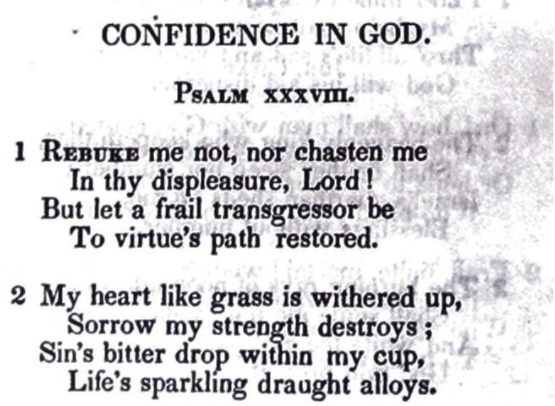the Open Siddur Project ✍︎ פְּרוֹיֶּקט הַסִּדּוּר הַפָּתוּחַ
a community-grown, libre Open Access archive of Jewish prayer and liturgical resources
This project is sustained through reciprocity for those sharing prayers and crafting their own prayerbooks.
Get Involved ✶ Upload Work ✶ Donate ✶ Giftshop בסיעתא דשמיא |
☰︎ Menu | 🔍︎
Search // Main //
🖖︎ Prayers & Praxes // 🌞︎ Prayers for the weekday, Shabbat, and season // Everyday // Daytime // 🤦 Taḥanun (Nefilat Apayim)
🤦 Taḥanun (Nefilat Apayim) An Untitled Prayer for Shaḥarit on days without Taḥanun after Psalms 15, by Rabbi Zalman Schachter-ShalomiIn his Siddur Tehilat Hashem Yedaber Pi (2009), this untitled teḥinah appears just below Rabbi Zalman Schachter Shalomi’s translation of Psalms 15 (recited on joyful and celebrative days when Taḥanun is not recited) and just above the Psalms of the Day section. We are not certain whether this teḥinah is an original prayer by Reb Zalman, a translation of an existing teḥinah found for Taḥanun, or a composite of teḥinot found in the Taḥanun service. . . . My God! my soul is Yours my body is Your servant, take pity on what You have created; my soul is Yours and my body is Yours, God help us for Your sake. We come to You because we want to honor Your reputation. Help us in our moral struggle for the sake of Your reputation; because You are kind and compassionate. Forgive us, for there is so much we need to be forgiven for. . . . A prescriptive instruction from Rabbi Zalman Schachter-Shalomi on the purpose of the taḥanun after the Amidah. . . . The pedagogical song “Hashem is Everywhere!” by Rabbi Yosef Goldstein (1928-2013) can be found in the context of his story, “Where is Hashem?,” the second track on his album מדות טובות Jewish Ethics Through Story and Song (Menorah Records 1972). In the instructions to reciting the lyrics, the singer points first to the six cardinal directions and lastly, by pointing inward towards one’s self. In so doing, one explicitly affirms the idea of the divine within ourselves and implicitly, in each other. . . . “Prayer — On Seeking for God” by Rabbi Morrison David Bial was first published in his anthology, An Offering of Prayer (1962), p. 22, from where this prayer was transcribed. . . . הִנֵּה שָׁם אֶמְצָאֶךָּ | Where We Can Find Yah, a prayer-poem by Eugene Kohn (1945) inspired by Rabindranath Tagore’s Gitanjali (Song Offerings, 1912)“Where We Can Find God,” a prayer-poem inspired by passages appearing in David Frishman’s Hebrew translation of Rabindranath Tagore’s Gitanjali. . . . Man Is Here for the Sake of Others, by Albert Einstein (1930) as excerpted by Rabbi Morrison David Bial“Man Is Here for the Sake of Others,” a short excerpt from a longer essay by Albert Einstein, was included by Rabbi Morrison David Bial in his collection of supplemental prayers and texts for personal prayer and synagogue services: An Offering of Prayer (Temple Sinai of Summit, New Jersey, 1962). The full text of Einstein’s essay appeared under the title “What I Believe” in Forum and Century 84 (October 1930), no. 4, p. 193-194. David E. Rowe and Robert Schulman (in Einstein on Politics 2007, p. 226) note, “The text was reproduced several times under the title ‘The World as I See It,’ most notably in Mein Weltbild and Ideas and Opinions, and in 1932 the German League of Human Rights released a phonograph recording of Einstein reading a slightly variant version entitled ‘Confession of Belief.'” . . . This is a prayer offered by the Piacezna Rebbe, Rabbi Kalonymus Kalman Shapira (1889-1943) and likely written down sometime in the 1920s before it was printed among other letters and writings in his sefer Derekh haMelekh (1931). The prayer, vocalized from the 2011 Feldheim edition and translated into English, was circulated online via the Lost Princess Initiative of Rabbi Yaakov Klein (Eilecha) beginning 25 May 2023. . . . Oh! How Shall Man With God Contend (Job 9), a hymn on “Obedience to the Will of God” by Penina Moïse (Ḳ.Ḳ. Beth Elohim 1842)“Oh! how shall man with God contend (Job Chap. IX),” by Penina Moïse, published in 1842, appears under the subject “Obedience to the Will of God” as Hymn 28 in Hymns Written for the Service of the Hebrew Congregation Beth Elohim, South Carolina (Penina Moïse et al., Ḳ.Ḳ. Beth Elohim, 1842), pp. 31-32. . . . Rebuke Me Not Nor Chasten Me (Psalms 38), a hymn on “Confidence in God” by Penina Moïse (Ḳ.Ḳ. Beth Elohim 1842)“Rebuke me not, nor chasten me (Psalm XXXVIII),” by Penina Moïse, published in 1842, appears under the subject “Confidence in God” as Hymn 29 in Hymns Written for the Service of the Hebrew Congregation Beth Elohim, South Carolina (Penina Moïse et al., Ḳ.Ḳ. Beth Elohim, 1842), pp. 32-33. . . . “How long will man in pleasure merged,” by Penina Moïse, published in 1842, appears under the subject “Piety” as Hymn 25 in Hymns Written for the Service of the Hebrew Congregation Beth Elohim, South Carolina (Penina Moïse et al., Ḳ.Ḳ. Beth Elohim, 1842), pp. 28-29. . . . “Man of the world! wilt thou not pause,” by Penina Moïse, published in 1842, appears under the subject “Piety” as Hymn 26 in Hymns Written for the Service of the Hebrew Congregation Beth Elohim, South Carolina (Penina Moïse et al., Ḳ.Ḳ. Beth Elohim, 1842), pp. 29-30. . . . Though Sorrows May be Multiplied, a hymn on “Obedience to the Will of God” by Penina Moïse (Ḳ.Ḳ. Beth Elohim 1842)“Though sorrows may be multiplied,” by Penina Moïse, published in 1842, appears under the subject “Obedience to the Will of God” as Hymn 27 in Hymns Written for the Service of the Hebrew Congregation Beth Elohim, South Carolina (Penina Moïse et al., Ḳ.Ḳ. Beth Elohim, 1842), pp. 30-31. . . . “Oh! turn at meek devotion’s call,” by Penina Moïse, published in 1842, appears under the subject “Piety” as Hymn 24 in Hymns Written for the Service of the Hebrew Congregation Beth Elohim, South Carolina (Penina Moïse et al., Ḳ.Ḳ. Beth Elohim, 1842), p. 28. . . . א דוּדעלע (אַיֵּה אֶמְצָאֶךָּ) | A Dudele (Where shall I seek you?), by Rabbi Levi Yitsḥaq of Berditchev (ca. 18th c.)A profound song invoking divine presence. . . . יָהּ, אָנָה אֶמְצָאֶךָּ | Yah, Where shall I find you?, a piyyut by Yehudah haLevi (ca. early 12th c.)A piyyut that expresses the paradox of a divinity that is both “Beyond” and “Present.” . . . Rabbi Zalman Schachter-Shalomi, z”l, included his translation of the prayer Psalms 6 in his Siddur Tehillat Hashem Yidaber Pi (2009). . . . Psalms 15 is read on special days of festive joy in place of Taḥanun. Rabbi Zalman Schachter-Shalomi, z”l, included his translation of Psalms 15 in his Siddur Tehillat Hashem Yidaber Pi (2009). To the best of my ability, I have set his translation side-by-side with the verses comprising the Psalm. –Aharon N. Varady . . . Rabbi Zalman Schachter-Shalomi, z”l, included his translation of Psalms 25 in his Siddur Tehillat Hashem Yidaber Pi (2009) for days on which Taḥanun is practiced after the morning Amidah. . . . |


















